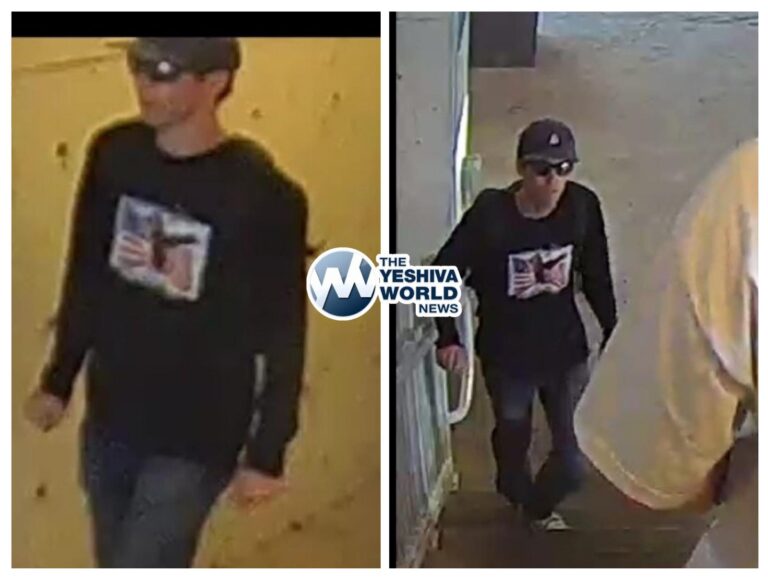 Defense attorney Yehuda Shoshan, representing the Supergas Company technician arrested following the fatal gas explosion in the Gilo neighborhood of southern Yerushalayim, spoke with Israel Radio on Monday afternoon, 19 Shevat 5774. Killed in the gas explosion were Avraham Tufan (56), his wife Galit (42) and their son Yosef Chaim (2) z”l.
Defense attorney Yehuda Shoshan, representing the Supergas Company technician arrested following the fatal gas explosion in the Gilo neighborhood of southern Yerushalayim, spoke with Israel Radio on Monday afternoon, 19 Shevat 5774. Killed in the gas explosion were Avraham Tufan (56), his wife Galit (42) and their son Yosef Chaim (2) z”l.
Rabbi Eliyahu Schlesinger, rav of Gilo and posek for the Rabbanut Yerushalayim knew the victims. He is quoted telling Kikar Shabbos the niftar davened in his shul Shabbos mincha, adding “he was a precious Yid, one who davened with us Shabbos mincha. He was always upbeat and happy. He married late and they had their son.” Rabbi Schlesinger explained he joined the shul for seudas shlishis every Shabbos.
The rav adds that one of the residents of the building is a woman whose husband was murdered in a terror attack on the road leading to Gilo 12 years ago. He offered to host the widow in his home with his family until she is resettled.
The rav called others as well, for he has been the community’s chief rabbi for decades and is familiar with many residents. He laments the magnitude of the disaster and the fact that many residents will require professional counseling.
Former Shas Minister Rabbi Shlomo Benizri, who gives a motzei Shabbos shiur in the building in which the blast occurred, also knew the niftar, describing him as a man that always had a smile on his face. He added the niftar was a regular participant in the weekly shiur Torah. It is reported the niftar attended a shiur in the center of Yerushalayim, returning home a few hours before the deadly blast occurred.
Attorney Shoshan explained that the explosion was nothing less than a tragedy, claiming lives, leaving others injured and destroying homes and other property. He stated that it is most unfortunate that the technician is being turned into a scapegoat, tried and convicted in the media before investigators have opportunity to gather evidence. Shoshan explained that his client arrived within 20 minutes of calls of a gas odor.
He stated that as the facts in the case are revealed, it will be determined the technician not only did what is expected of him, but he closed the main gas valve on the apartment he responded to, while telling the residents it was an extra safety measure even though he established the leak was elsewhere.
Indeed this was the case for the explosion occurred in another apartment, not the one the technician responded to, Shoshan explained, adding there could have been multiple leaks or gas could have been left open by a child or elderly resident. The powerful blast destroyed the third story of the four-story structure.
Shoshan fears that his client is being victimized as a result of the public outrage and grief, but in reality, the problem was not the technician’s performance but a nationwide system that is outdated in part.
Some experts interviewed by Israel Radio following the blast explain the system is outdated and there is a frightening lack of supervision and oversight, stating a tragic explosion occurs every number of years, prompting such discussions but nothing ever changes.
Leading fire inspector in this case Ron Shelef declined to discuss this ongoing investigation, but he did seem to concur with concerns of an outdated and ill-maintained system. The law demands gas companies to conduct and safety inspection in the home of customers once every five years and to make required safety repairs before recertifying a home.
Shelef confirms the department received 4,500-5,000 calls annually for gas-related issues, and while in most cases nothing occurs, there are cases in which the situation is indeed life-threatening, at times called after the explosion as was the case in Gilo. Shelef stresses responsibility however does not fall on the fire department, but on the gas companies, who are expected to maintain safe systems.
Shelef adds the nation’s Gas Authority is working side-by-side with him and his men in this case towards learning what caused the fatal blast and what measures if any must be taken to avoid a reoccurrence in the future.
When asked why his client was remanded by a Jerusalem court until Wednesday, 21 Shevat, Shoshan explained that it appears the court wished to appease the anger and pain of citizens but there is no logical reason to keep the technician behind bars for he is pained to the core over what occurred, well-aware of the loss of life despite the realization he did not cause the blast.
This Tatzpit agency video shows the disastrous aftermath of the gas explosion.
(YWN – Israel Desk, Jerusalem / Photo: The Tufan family z”l)











One Response
it is too easy to make snap decisions on the basis of a scanty newspaper article that lacks many facts.
A judge must hear both sides before rendering a decision.